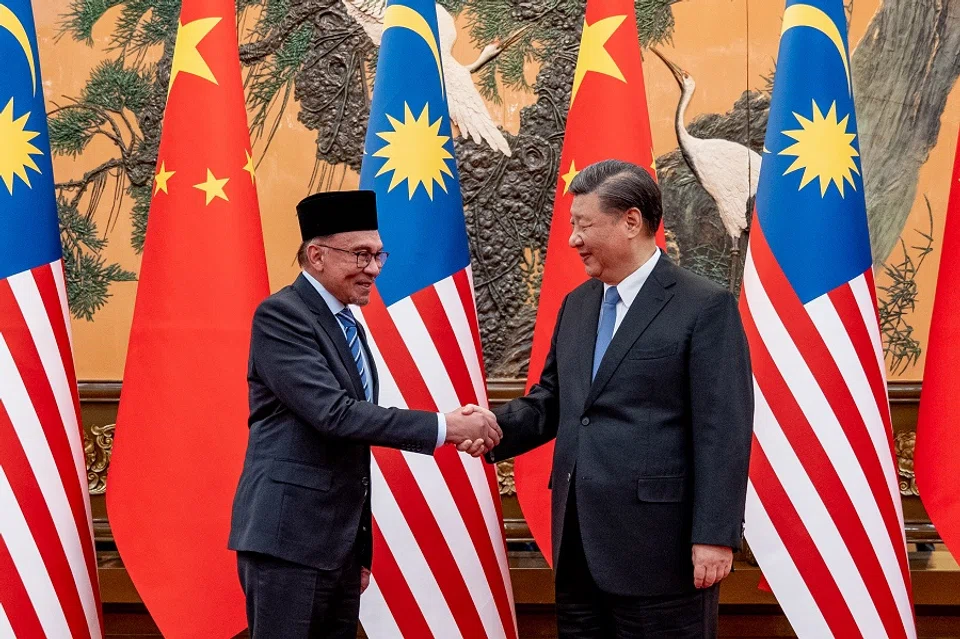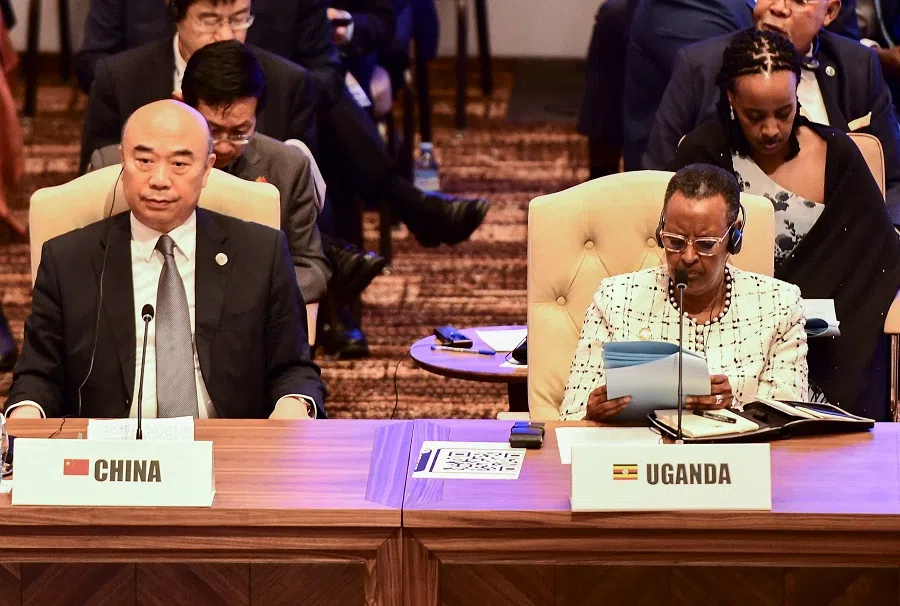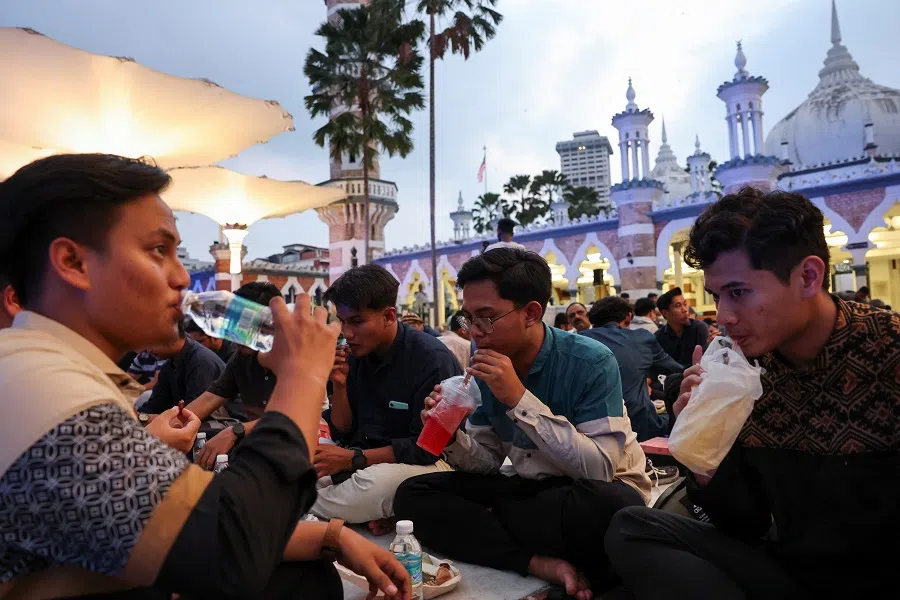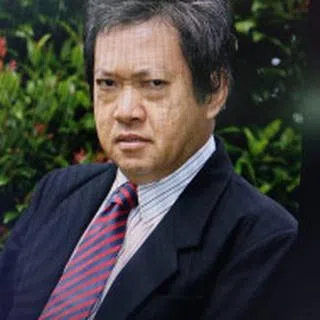Why Malaysia has no problems with China
Malaysian researcher Bunn Nagara explains how Malaysian foreign policy and the psyche of Southeast Asian countries remain very much tied to the principles of the non-aligned movement established more than 50 years ago. It is this spirit that helps Malaysia stay above the fray amid the US-China tussle.

Malaysian foreign policy has recently loomed large in Western circles, gaining the attention of those unfamiliar with non-alignment in general and Malaysian policy in particular. Many of the reported issues concerning Malaysia-China relations are also often presented without adequate context.
The Financial Times queried Anwar on US criticisms of Malaysia’s seemingly close relations with China. Set against the backdrop of rising US-China tensions, even normal healthy relations with Beijing were deemed anomalous if not aberrant.
When Anwar was asked about Malaysia’s position again at the ASEAN-Australia Special Summit in Melbourne, he said “Malaysians do not have a problem with China”. He has on various occasions stressed that like all sovereign nations, an independent Malaysia is entitled to its own policies.
Malaysia’s foreign policy is consistent throughout all its federal administrations and is a shared stance among both government and opposition parties. This enduring consistency suggests it reflects the position of Malaysia’s deep state.
... it [Malaysia] had always been non-aligned in spirit notwithstanding the Anglophilia of first Prime Minister Tunku Abdul Rahman.
History of mutually advantageous ties with China
Through two millennia, sovereign Malay sultanates thrived on trade and diplomacy with China. The Malay peninsula with Singapore, served as a global trade hub between East and West, contributing significantly to early regional prosperity.
Relations with China experienced a hiatus with the Qing dynasty’s closed-door policy, but such challenges were few and only blips for countries with long histories. Mutually advantageous ties have been the norm, including with tributary state relations, when China tried to maintain regional order and stability on its fringes — with limited success — while not impinging on the sovereignty of neighbours.
In the present day, spurning constructive relations with today’s rising China would be atypical, disruptive and self-defeating. Like other countries, Malaysian foreign policy is informed by the current US-China feud. Malaysia knows how unnecessary, irrational and mutually damaging the tussle is — despite some gains from industrial relocation of “de-risking” — with the collateral damage spread wide and indiscriminately.
Malaya and its neighbours refrained from joining the Southeast Asia Treaty Organisation (SEATO), the US-led Cold War instrument, except Thailand and the Philippines which hosted US military bases.
Staying non-aligned
Pre-colonial Southeast Asia was non-aligned because that is the natural state of free peoples. The region’s collective sense of neutrality, spirit of independent self-empowerment, and capacity to exercise sovereign prerogatives based on its own interests are the natural rights of self-governance unsullied by colonisation.
With a globally divisive Cold War, the non-aligned movement (NAM) provided a means for decolonised nations to return to that status and affirm their self-determination with a shared purpose in nation building and economic development.
Between 1961 and 2003, all countries in Southeast Asia joined the NAM. Malaysia joined in 1970, but it had always been non-aligned in spirit notwithstanding the Anglophilia of first Prime Minister Tunku Abdul Rahman.
Malaya and its neighbours refrained from joining the Southeast Asia Treaty Organisation (SEATO), the US-led Cold War instrument, except Thailand and the Philippines which hosted US military bases. By the 1970s, SEATO experienced declining interest, and the US pullout from Vietnam later became a convenient pretext for dismantling it.
In Europe, however, NATO continues to expand even after the Cold War. Military alliances tend to acquire a growth logic of their own, unless checked by internal antipathy if not outright hostility.
For Southeast Asia, it was a mix of indifference and an aversion to great power politics beyond any regional nation’s control. Since ASEAN’s establishment in 1967, a regional identity with a sense of common purpose has grown exponentially.
Ensuring independence and stability
For nations newly independent from Western powers, being roped into a Western alliance seemed too much like associate colony status. National sovereignty means independent policy-making, and anything less would undermine national credibility and self-esteem.
Singapore and Malaysia are members of the Five Power Defence Arrangements (FPDA) with the UK, Australia and New Zealand, with minimal obligations. Originating in the defunct Malayan Emergency and Britain’s withdrawal east of Suez, the FPDA requires only “immediate consultations” in case of threats to Malaysia or Singapore.
The pact makes no reference to exclusive economic zones (EEZs) even when all its members occupy maritime regions. FPDA membership is therefore no hindrance to Malaysia’s non-alignment and has no role in Cold Wars old or new.
Malaysia and Singapore pressed Beijing to cut ties with insurgents and fifth columnists, and Dengist reformists obliged.
Southeast Asia’s communist-inspired insurgencies, all practically defeated, were the domestic struggles of disaffected groups over their countries’ post-independence political economies. As separate expressions of nationalism within individual countries, they were hardly coordinated regionally, much less forming a unified force in a global Cold War.
With their agrarian or commodity-based economies, they looked to Maoism rather than Leninism, seeking assistance from Beijing but receiving little in return. As armed struggles that rebelled against fledgling sovereign states, they had to be put down regardless of their particular ideologies, which became secondary.
By the 1970s, Washington wanted a reset with Beijing to widen the Sino-Soviet split. Malaysia and Singapore pressed Beijing to cut ties with insurgents and fifth columnists, and Dengist reformists obliged.
China’s regional appeal lies less in soft power than the anticipated regional prosperity it de facto leads, with voluntary acts of goodwill.
China’s regional appeal
Currently, China suffers a soft power deficit relative to the West, but it helps Beijing to share a non-interventionist policy with ASEAN. That is preferred to a culture of colonial subjugation and war-making of the West.
The Cold War was a US-Soviet contest with China on the sidelines. With Beijing’s focus on economic development, the Group of 77 (G77, the NAM’s economic equivalent) saw China as one of its own and inducted a hesitant Beijing into the 135-member G77+China.
There is growing Chinese cooperation, trade and investment in much of the developing world, particularly Southeast Asia. China’s regional appeal lies less in soft power than the anticipated regional prosperity it de facto leads, with voluntary acts of goodwill.
China had scheduled a renminbi revaluation in the 1990s when the 1997 Asian Financial Crisis struck. Beijing held off the revaluation at some cost, limiting the damage to debt-ridden stricken economies.
Your enemies may not be my enemies
When Nelson Mandela was informed of his conservative American supporters’ disapproval of his relationships with Libya’s Colonel Gaddafi, the Palestinian Authority’s Yasser Arafat, and Cuba’s Fidel Castro, he remarked that their error lay in believing “that their enemies should be our enemies”.
Western exceptionalism and double standards thrive on the perceived acquiescence of the developing world in Western interests.

In a similar vein, at the GLOBSEC 2022 Bratislava Forum, India’s External Affairs Minister S Jaishankar lamented that Europe still believes that “its problems are the world’s problems, but the world’s problems are not Europe’s problems”. Western exceptionalism and double standards thrive on the perceived acquiescence of the developing world in Western interests.
Non-alignment is not just passive abeyance. For Egypt’s Gamal Abdel Nasser and Yugoslavia’s Josip Broz Tito, it was “positive neutrality”, and for India’s Jawaharlal Nehru, it was “dynamic” activism.
In his keynote address as host of the Bandung Conference, President Sukarno called for world peace, eliminating war and colonialism. That Bandung spirit lives on in many countries despite changes in government.
Rwandan envoy James Kimonyo insists his country, which joined the NAM in 1970, would not be bullied into abandoning its neutrality in the US-China contest. Other examples abound.
Not a zero-sum game
Responding to calls to actively engaged neutrality, former Malaysian Deputy Prime Minister Muhyiddin Yassin advocated “equiproximity” to — rather than equidistance from — the great powers, in his keynote address at the 25th Asia-Pacific Roundtable in May 2011.
In a 2022 Financial Times interview, former Prime Minister Mahathir Mohamad urged ASEAN countries to “move closer to China” in response to US provocations making use of Taiwan.
Anwar was frank and consistent in rebuffing the West’s sinophobia, noting that Malaysia had no problems with China.

Malaysia rejects an either-or, zero-sum calculation in its foreign relations. It is possible and preferable to be friends with both the US and China at the same time, because anything less would deny useful opportunities and could escalate regional tensions and global polarisation.
Anwar was frank and consistent in rebuffing the West’s sinophobia, noting that Malaysia had no problems with China. Other countries in the same position may not have said as much, but much of the region shares his outlook if not also his candour.



![[Big read] When the Arctic opens, what happens to Singapore?](https://cassette.sphdigital.com.sg/image/thinkchina/da65edebca34645c711c55e83e9877109b3c53847ebb1305573974651df1d13a)
![[Video] George Yeo: America’s deep pain — and why China won’t colonise](https://cassette.sphdigital.com.sg/image/thinkchina/15083e45d96c12390bdea6af2daf19fd9fcd875aa44a0f92796f34e3dad561cc)
